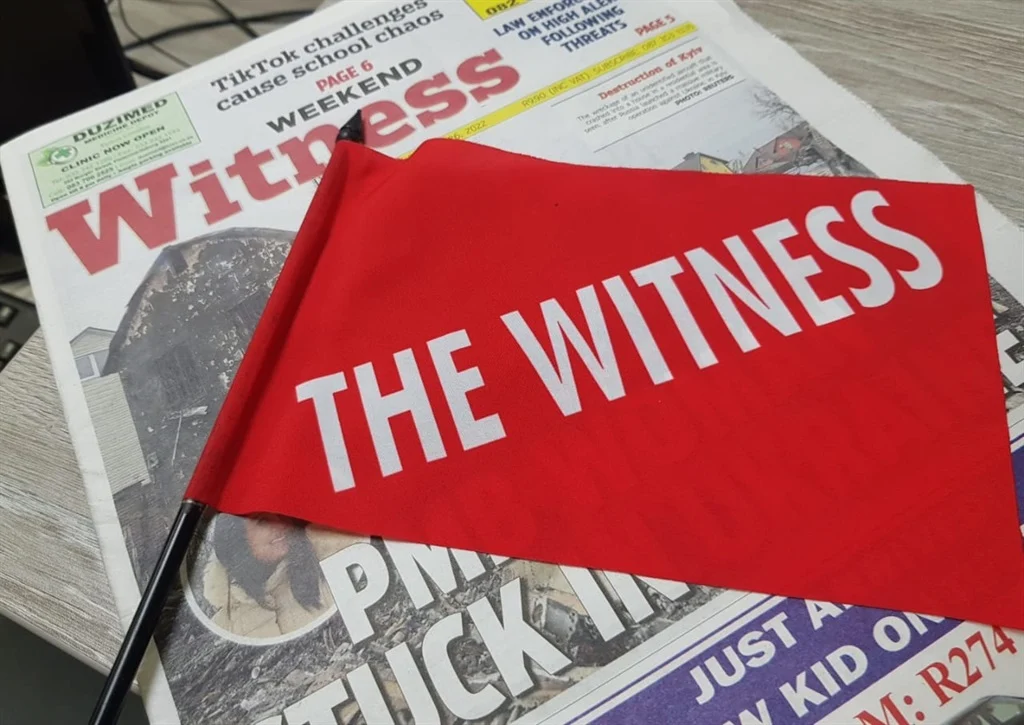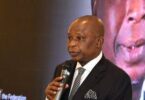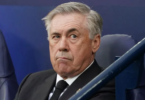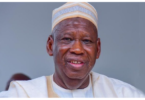The flagbearer of the Social Democratic Party (SDP) in the 2023 presidential election, Barr Adewole Adebayo, speaks on the policies of President Tinubu’s administration, the proposed minimum wage of organised labour, and other challenges confronting the masses. Subair Mohammed writes.
Recently, the Federal Government inaugurated a committee for the implementation of the Stephen Oronsaye report. The FG gave the Committee 12 weeks to submit its report; do you think this is sufficient to effectively accomplish this task?
That’s the minimum they can do because they know there’s a similar report in England called the Cadbury Report. How long did it take the parliament in England to enact a report? They are quick with it. This one has dragged on for so long. It is long overdue.
Also, the report needs to be updated before it is implemented. This should be the starting point because, in life, and that’s why mathematics is very important for leadership.
But beyond this, once the agencies are scrapped and others are decapitated or merged, if there is no efficiency within, there will be problems. And that’s where the qualitative aspect comes in. So the government should use this moment not only to implement the Orosanye report but to go beyond that and enhance it.
There is no reason the police cannot be under the Ministry of the Interior because immigration is part of the police. Immigration can be merged with the Police Service Commission.
So that journey is continuous because there’s a government office that should be with the president, that would monitor efficiency in government, and that treats government as if it’s a factory, where you check the level of productivity and efficiency. So ministers should be undergoing that kind of Singaporean efficiency test. It’s a long journey.
What’s your take on the FG’s ban on Binance?
First and foremost, when it has to do with your government and any foreign entity, your government’s on track. We have to cultivate the attitude of supporting our home government, because if Binance is sanctioned by the South African government, the Russian government, the USA, and the UK governments, you won’t find citizens of that country on the side of Binance. They will support their government immediately. So, what we need to understand is that Binance, in operating in Nigeria, ought to know that they are within Nigeria’s territory and must respect the law of the country.
Although Binance said they have not broken any law in Nigeria, the government has jurisdiction over them to question and sanction them. Binance did not have any duty to help the Nigerian government implement its policy.
The only duty Binance has, like any other entity, is not to break any law in Nigeria. If you break any law in Nigeria, you are really going to be in trouble with the government.
But the government itself needs to stop its own criminality within the government because many of the crises that you find in foreign exchange come from the State House and the Central Bank. So the government should stop violating its own laws. It will be a good example.
What is the role of the masses in ending economic hardship and attaining good governance?
Everybody is trying to survive in Nigeria. But the truth is, you don’t grow an economy in survival mode; you grow an economy on productivity and creativity. So when you hire a person in Nigeria, you have probably hired your enemy because of the amount of money that is being paid to him as salary.
The salary of an average worker cannot pay his rent; it cannot pay for his children’s education; nor can it put food on his table. So we are in a country where both the employer and the employee are lying to each other.
Therefore, right from the State House, there’s a problem. So that’s why I said that we need fundamental adjustments, and they can be done.
That’s why I keep talking about Chapter Two of the Nigerian Constitution, which is the map to our greatness. If we follow it, many of these problems will be resolved. There will be unity and order in the country.
We need to make these changes before we can begin to see real changes. Nigerians are good people, but we don’t like failure. We are not the kind of people who submit to poverty. There are many countries that are endemic to poverty. They take it as their lot.
If you go to countries that are poor, they just accept their fate, but Nigeria is different.
What is your assessment of the federal government’s policy implementation so far?
There is something called appreciation for the situation. What is happening objectively in Nigeria is one reality, and the perception of what is happening to individuals and sectors is another thing. We just realised that we need to do our homework. That is the objective reality. But the perception of each person is now different.
The first thing I diagnosed in the course of the 2023 election and after was whether we understood our homework. If you have homework in physics and you are bringing Wole Soyinka’s novel, Trial of Brother Jero, or Achebe’s Arrow of God, you will realise that no matter how well-intentioned you are, you are doing the wrong subject. So I see that what is facing and chasing us is poverty, insecurity, and bad governance.
In the end, the election went the way it went, and thanks to many of you who appreciated me but didn’t come and vote for me, the election went the other way.
So, however much President Tinubu is trying, however wonderful his ministers are, I wish they would spend all that energy on the actual priorities of what is ailing the country and try to create wealth for the people, through the people themselves, and they would try as much as possible to deal with the primary duties of government, which are to keep people safe, to keep people inspired, and to obey the law. The first duty of the government is to keep everyone safe.
It is believed that there are some sacred cows, particularly from the North, that are untouchable, which may be the undoing of this administration in 2027. Do you share this view?
The current administration has not worn all the uniforms of a government. It’s like a soldier or a policeman. So this government has a duty to properly be in charge and make things go well.
One of the critics of the government, Senator Shehu Sani, who lives in Kaduna, tweeted recently that the train did not work because of the labour industrial action, and he had to use the road. He found there was a change on the roads because soldiers were everywhere, where bandits used to be. That is a physical manifestation of trying to be a government.
If that testimony is true in Gboko, it’s true in Zaki Ibiam, it’s true in Biu, in Sokoto, Yewa, everywhere, then people can say there’s a government here. You don’t need your opponent to criticise you or your friends to applaud you. If the president is working very hard, people will see it. Even your opponent will say, I don’t agree with him, but he’s working hard.
So you can either like APC or detest Sanwolu. You will not ignore the red line and say, I am not going to take the train or I can’t see the train. In many democracies, they are able to remain in a republic or whatever system they adopt because they don’t argue about the fundamentals because they are already enshrined in their constitution. They only argue about style and stylistic things.
But in Nigeria, we will argue about the name of the country, even its existence, whether the country will exist or not, whether the president is our president or not, whether Lagos is the capital of Lagos, whether we are in Abuja now, or whether we are moving capital back to Lagos. We argue about everything, and that is not a sign of people who are ready to work.
The Ministry of Interior came out with a policy that aims at taxing the employment of expatriates in Nigeria as a means of encouraging and reinforcing local content, even as the government is looking for direct foreign investment. What’s your thought on this?
Well, I think that it’s a question of dilemma in policy. Policy is inter-governmental and intra-governmental. The nature of this policy is intergovernmental, which means that the government speaks with one voice. And from what I saw, the president himself was the launcher of that policy handbook. There are contradictions that need to be resolved there. Those contradictions are legalistic in nature. If you are inviting foreign investors, on what terms are you inviting them?
Now, if you look at the objective of the government, especially if you look at the provisions of Chapter 2 of the Constitution, the government has a duty to ensure that the commanding heights of the economy are not dominated by foreign agents or elements.
So the government has a duty to Nigerians to ensure that Nigerians have full participation in the economy of their country. You want to ensure that the citizens of your country have employment, that your independence is not academic independence, that your citizens are actually able to participate in the economy, that you get paid, that people don’t come to Nigeria to do business and come with their own driver, their own cook, and their own accountant, and then they are in your economy and your citizens don’t have jobs.
But what you need to do is make sure that what you’re doing is consistent with the law and that you don’t surprise your investors; you don’t go to them and say, come on in. And then, when they get in, you hold them to ransom and give them new conditions, or you give them a multiplicity of things to comply with. So I believe in the one-card policy. Nobody requires three or four documents for you to show your identity. So they will need to harmonise that.
What would you have done differently to curb corruption if you were the president?
Corruption is a tale. Corruption is a reality. If you call your opponent corrupt, you are already tarnishing their way of fighting in politics. So corruption is a political language. So if you align with them, even if the person has a clear case of corruption, they’ll say he is indestructible and blameless, but if they don’t like the person’s politics, they’ll say he’s a rogue and a thief. Some elements of politics can make allegations of corruption without evidence.
So I don’t take that seriously. But for a government, the only way you can show me that somebody who was there before you or any other person is corrupt is for you to use the legal system to prove it by making sure that you arrest the people, investigate, and then you can apprehend them and take them through the legal process.
But if you are just murmuring, in the case of former President Buhari, he came and said everybody was corrupt, but the corrupt people later became his friends and he became very comfortable with them.
So I said those who were cowards and ran away out of panic, but the rest who stayed behind it by the second term of contributing money to his campaign—even his first campaign that he ran—the party itself was full of corruption.
With all due respect, I didn’t take the corruption seriously. In the case of the current government, I don’t know whether they are the ones spreading the rumour, but officially, the head of the EFCC has not come out to say ABC and D in Buhari’s government are corrupt.







